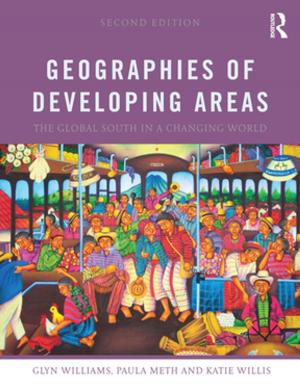Politicising Ethics in International Relations
Cosmopolitanism as Hospitality
Nonfiction, Social & Cultural Studies, Political Science, International, International Relations| Author: | Gideon Baker | ISBN: | 9781136812491 |
| Publisher: | Taylor and Francis | Publication: | March 1, 2011 |
| Imprint: | Routledge | Language: | English |
| Author: | Gideon Baker |
| ISBN: | 9781136812491 |
| Publisher: | Taylor and Francis |
| Publication: | March 1, 2011 |
| Imprint: | Routledge |
| Language: | English |
The ethics of hospitality – the welcome of the foreigner – is implied in all moral debate in international relations ranging from questions of asylum to those of humanitarian intervention. Why then has there been so little reflection on hospitality in the study of international relations to date?
Seeking to correct this striking omission, and making an important and original contribution to debates about ethics in international relations in the process, Baker outlines a theory of cosmopolitanism as hospitality which goes beyond existing cosmopolitanisms. He argues that we must understand cosmopolitanism not as the pursuit of a world in which there are no more foreigners but as the welcome of the foreigner. However, though hospitality calls for a welcome, there is always a decision on the welcome to be made. Cosmopolitanism as hospitality is therefore always as much a politics as it is an ethics.
Addressing issues of central concern for those who seek to understand our obligations to strangers, this book will be of interest to students and scholars of international relations, security studies, ethics, and political and international theory.
The ethics of hospitality – the welcome of the foreigner – is implied in all moral debate in international relations ranging from questions of asylum to those of humanitarian intervention. Why then has there been so little reflection on hospitality in the study of international relations to date?
Seeking to correct this striking omission, and making an important and original contribution to debates about ethics in international relations in the process, Baker outlines a theory of cosmopolitanism as hospitality which goes beyond existing cosmopolitanisms. He argues that we must understand cosmopolitanism not as the pursuit of a world in which there are no more foreigners but as the welcome of the foreigner. However, though hospitality calls for a welcome, there is always a decision on the welcome to be made. Cosmopolitanism as hospitality is therefore always as much a politics as it is an ethics.
Addressing issues of central concern for those who seek to understand our obligations to strangers, this book will be of interest to students and scholars of international relations, security studies, ethics, and political and international theory.















